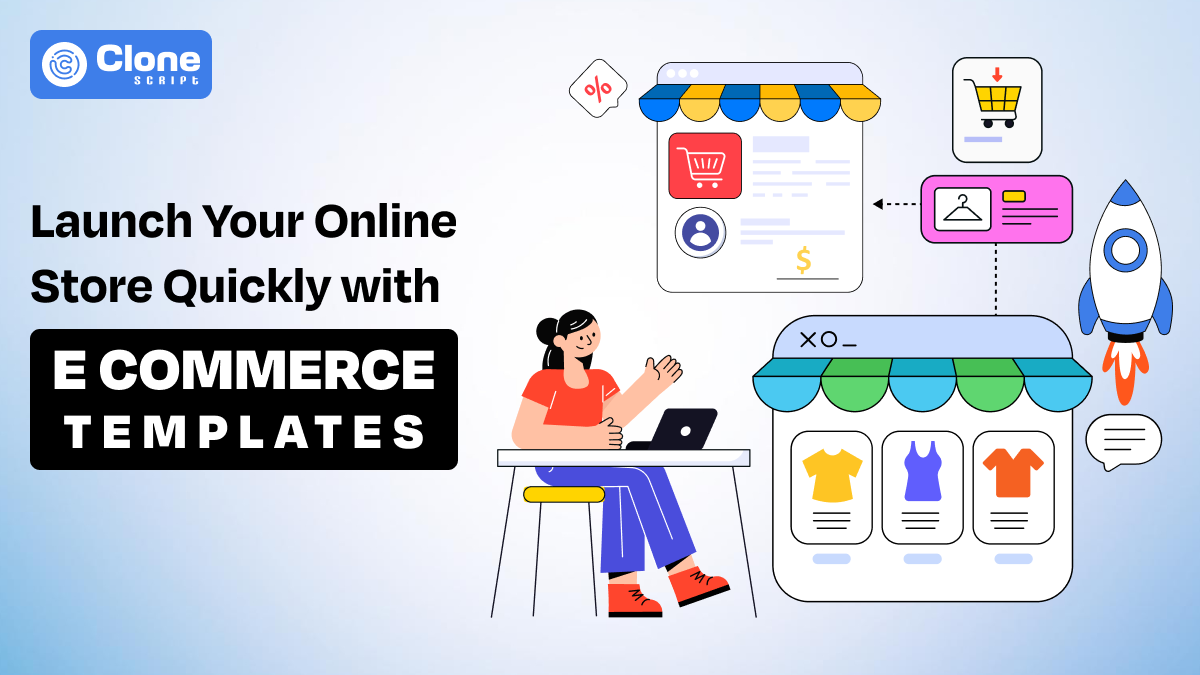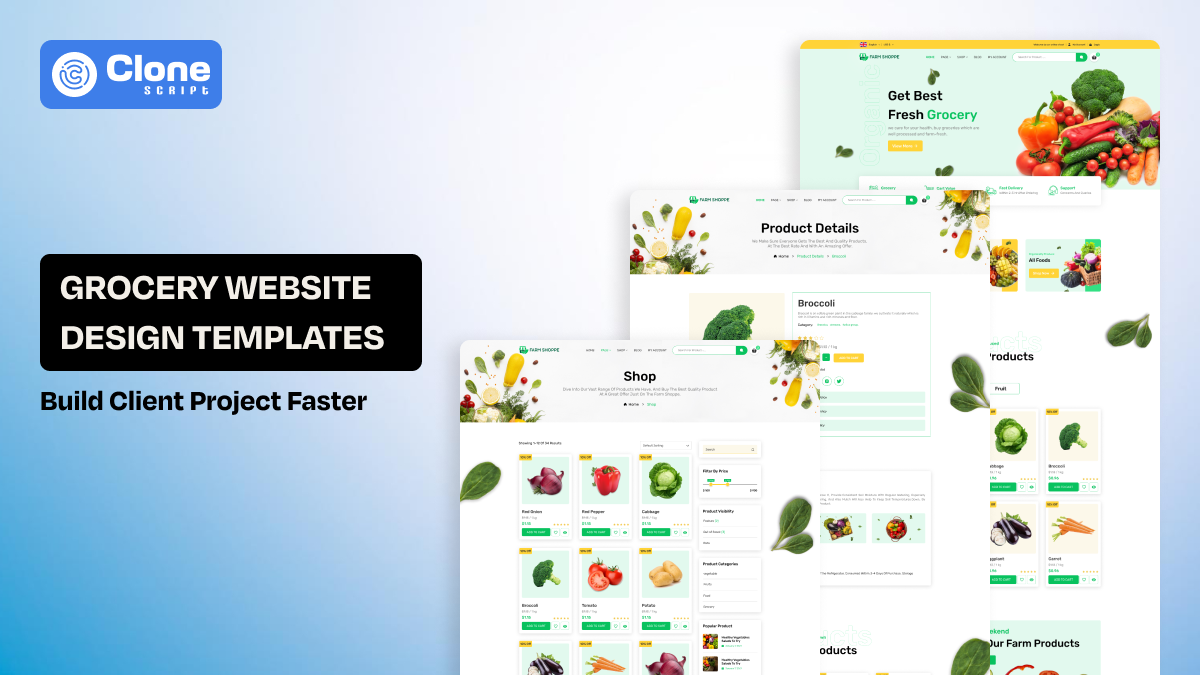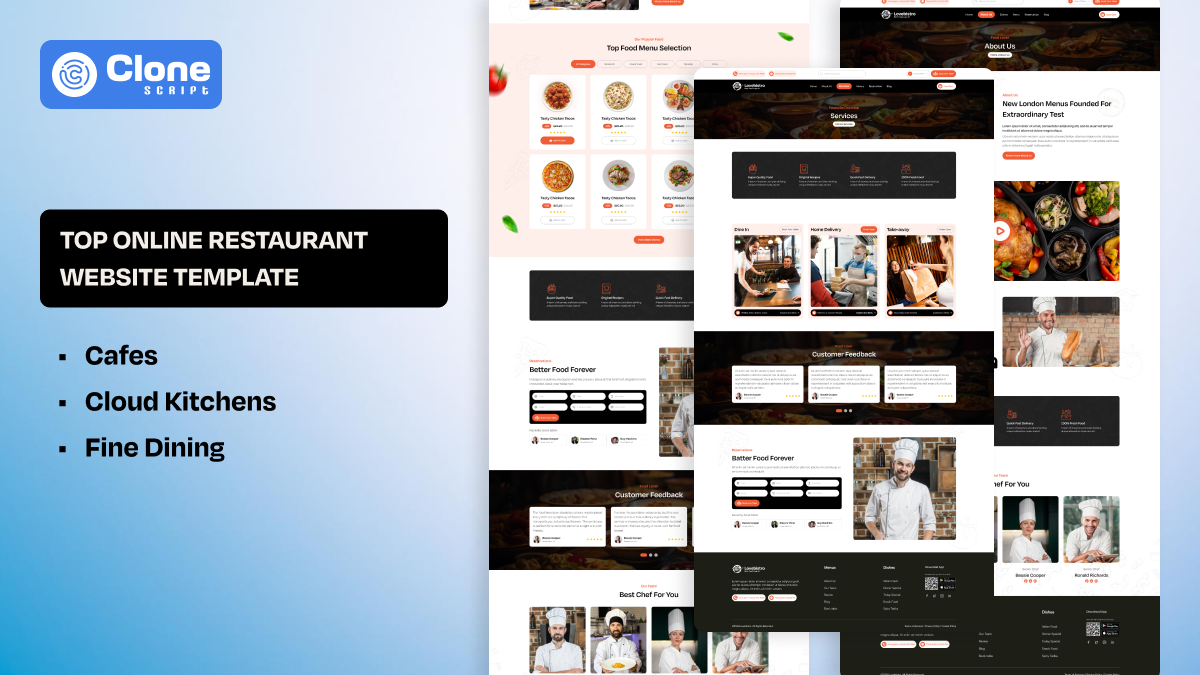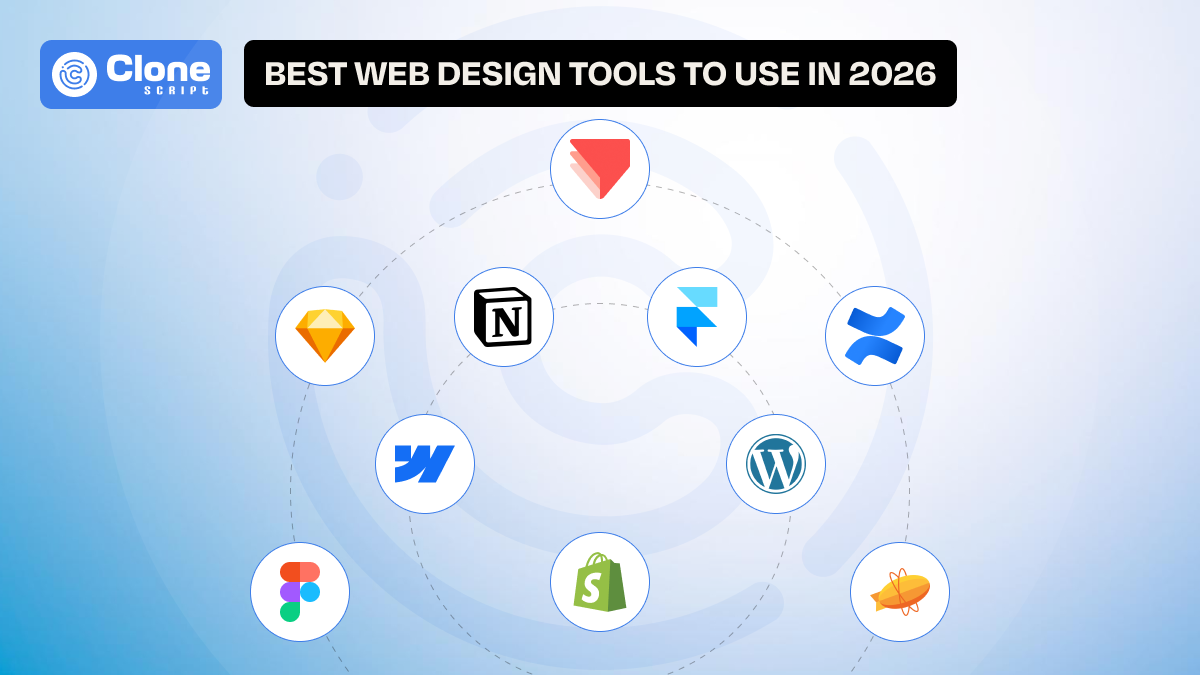E-commerce Website Templates Role in Development: A Guide For Business Owners
Did you know that businesses utilizing pre-designed e-commerce website templates can reduce their website development time by up to 50%?
Many successful startups have leveraged e-commerce templates to quickly establish their online presence and drive sales.
While cutting-edge technologies like Artificial Intelligence (AI) and Machine Learning (ML) enhance website development's power and efficiency, their high costs often make them inaccessible to e-commerce startups.
This is where e-commerce website templates come into play. These pre-designed layouts provide a cost-effective and efficient way to establish a functional, responsive, and user-friendly online store without the hefty price tag.
Whether you're just starting out or looking to revamp your existing site, templates can significantly streamline the development process.
In this article, we’ll delve into the crucial role that e-commerce templates play in website development, explore their benefits for your business, and guide you on how to choose the perfect template to meet your unique needs.
What Is an E-commerce Website Template?
An e-commerce website template is a pre-designed layout for an online store, created by developers and designers to offer you an easy way to set up a professional-looking website without starting from scratch.
These templates typically include common pages like home, product listings, shopping carts, and checkout systems. They are fully customizable, allowing you to tailor the design to match your brand.
By leveraging an e-commerce template, you can quickly establish your online store’s design, minimizing the time and resources required to launch your website.
Many website templates are compatible with popular platforms like Shopify, WooCommerce, or Magento, making the development process even more seamless. In other words, it comes with a complete front-end side website development.
The Role of E-commerce Website Templates in Development
-
Quick Setup
One of the primary roles of e-commerce templates is to provide a quick and efficient setup. As a business owner with limited technical expertise, coding a website from the ground up can be overwhelming for you.
An e-commerce template offers a ready-made structure that significantly reduces the development time. Instead of spending months working on design and development, you can have your online store up and running within a few days or even hours.
-
Cost-Efficiency
Developing a custom e-commerce site can be costly, especially if you hire a professional designer and developer. Templates provide a budget-friendly alternative without sacrificing the quality of your website.
Affordable e-commerce website templates allow small to medium-sized businesses to launch their stores with a professional look without breaking the bank. This cost-saving element enables you to invest in other critical aspects of your business, such as marketing or inventory.
-
Customization Options
While templates are pre-designed, they are far from rigid. Most e-commerce website templates are designed with customization in mind, allowing you to tweak everything from colors to fonts to layouts.
You can also add custom features or plugins that enhance the functionality of your online store. This flexibility means that even though you're using a template, you can still create a unique website that reflects your brand’s personality and needs.
-
SEO-Friendly Design
A well-designed e-commerce template incorporates SEO (Search Engine Optimization) best practices to enhance your online store’s visibility. Elements such as responsive design, fast loading times, and clean code help ensure your website ranks well in search engines like Google.
Additionally, these templates often include features like optimized meta tags and descriptions, URL structures, and image alt attributes, which are essential for improving your store's visibility.
-
Enhancing User Experience (UX) with E-commerce Templates
Successful e-commerce stores provide an easy, intuitive shopping experience for customers. Top e-commerce website templates are typically designed with user experience (UX) in mind.
They come with well-organized layouts, clear navigation, and effective calls to action, all of which contribute to a smooth and pleasant shopping experience. By choosing a template with UX optimization, you reduce bounce rates and encourage customers to complete their purchases.
-
Mobile-Responsiveness
With the rise of mobile shopping, it's more critical than ever to ensure your website is mobile-friendly. Most e-commerce templates are designed to be responsive, meaning they automatically adjust to different screen sizes and devices.
A mobile-responsive website template ensures that your store looks great on smartphones and tablets, providing customers with a seamless experience whether they’re shopping on the go or at home.
-
Secure Payment Gateway Integration
E-commerce templates often come with built-in payment gateway integration. These secure payment options allow you to accept a variety of payment methods such as credit cards, PayPal, or cryptocurrency.
A good template ensures that your checkout process is secure and reliable, building trust with your customers and reducing cart abandonment rates.
How to Choose the Best E-commerce Website Template?
Choosing the right template is crucial for the success of your online store. Here are some tips to help you make the best choice:
-
Understand Your Business Needs
Before diving into template options, take a moment to define your business requirements.
-
Do you need a template that supports multiple product categories?
-
Are you focused on digital downloads, or will you be shipping physical products?
By clarifying your needs, you’ll be able to choose a template that’s designed to support your business model.
-
Prioritize Customization Features
While a visually appealing template is essential, it's also crucial that it offers customization options. Look for a template that allows you to easily modify elements like fonts, colors, images, and layout. Make sure you can add custom plugins or apps for enhanced functionality.
-
Check for Mobile Responsiveness
As mentioned earlier, a mobile-responsive design is no longer optional. Ensure that the template you choose works seamlessly across different devices. Many template providers offer demos, so test the template on your smartphone and tablet to see how it looks and functions.
-
SEO-Friendly Features
Ensure that the template is optimized for search engines to improve your ranking in search results. Look for templates that allow easy modification of meta descriptions, titles, and URLs. Additionally, features like fast loading times and clean code are essential for enhancing your website’s visibility on search engines.
-
Look for Customer Support
Even if you're using a template, you might run into challenges while setting up or customizing your website. Opt for a template provider that offers customer support, whether through email, chat, or a detailed knowledge base. Having access to support can save you time and frustration in the long run.
-
Security Features
E-commerce websites deal with sensitive customer information, so it’s essential to choose a template that prioritizes security. Look for features like SSL certificate integration, secure payment gateways, and data encryption. These measures will help protect your business and build customer trust.
Why Templates are Ideal for Business Owners?
For business owners, e-commerce website templates offer a streamlined and cost-effective way to launch an online store without the need for a full-scale custom build. They allow you to focus on growing your business rather than worrying about web development intricacies.
Templates are particularly beneficial if:
-
You need to go live quickly.
-
You have a limited budget.
-
You want flexibility without starting from scratch.
-
You need a professional and mobile-responsive site.
-
You’re looking for SEO-friendly and secure options.
Read more like this:
-
10 Tips To Consider For Choosing The Best E-commerce Website Templates
-
11 Advantages for Developing E-commerce Mobile App For Your Business
-
E-commerce Mobile App: Transform Your Online Store With Ease
-
Web Design Challenges Plus Solutions To Know Before Start Development
-
What Is The Role Of UI and UX Design In Modern Web Development
-
Top 10 Website Design Trends for 2025: The Future of the Web is Here
Conclusion: Are E-commerce Website Templates Worth It?
Absolutely! For most business owners, leveraging an e-commerce website template is a smart decision that saves time, reduces costs, and offers flexibility. The role these templates play in website development is essential, as they provide a solid foundation for launching a fully functional and professional online store.
By choosing the right template, you can ensure your website is optimized for both performance and customer experience, setting your business up for success in the competitive online market.
When selecting your template, remember to consider customization, SEO, mobile responsiveness, and security features. Doing so will give you a website that not only looks great but also performs well.
Want to purchase an e-commerce website template? We have the best templates that suit your brand objectives and values. If you need any additional information, contact us for more information.
 BTC - Bitcoin
BTC - Bitcoin
 USDTERC20 - USDT ERC20
USDTERC20 - USDT ERC20
 ETH - Ethereum
ETH - Ethereum
 BNB - Binance
BNB - Binance
 BCH - Bitcoin Cash
BCH - Bitcoin Cash
 DOGE - Dogecoin
DOGE - Dogecoin
 TRX - TRON
TRX - TRON
 USDTTRC20 - USD TRC20
USDTTRC20 - USD TRC20
 LTC - LiteCoin
LTC - LiteCoin







